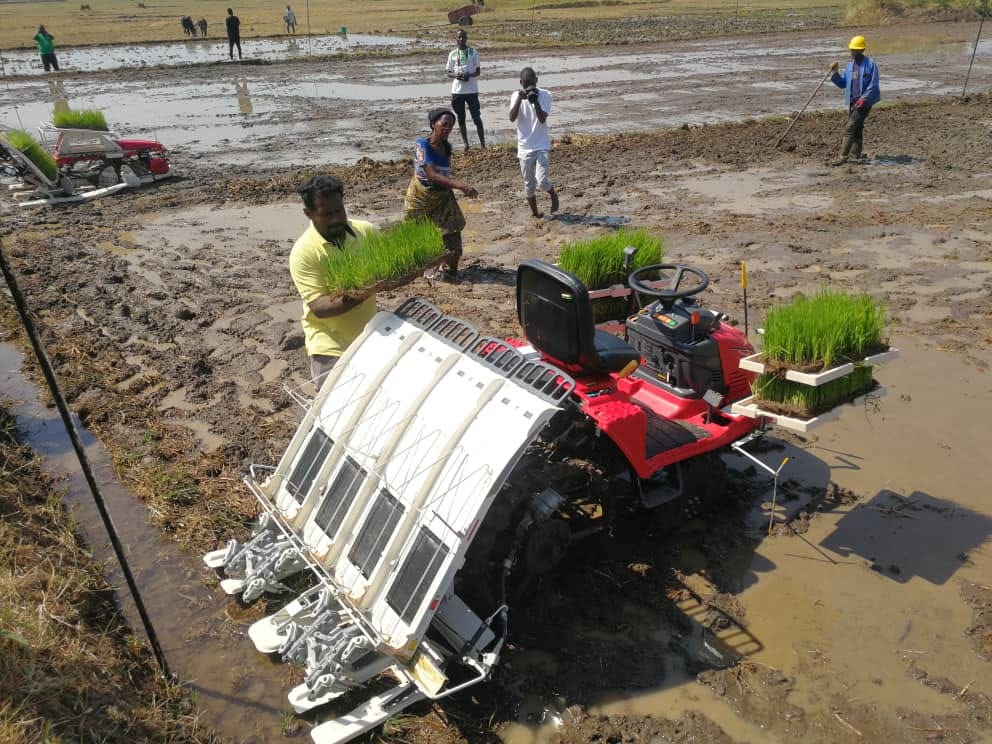Malawi Agriculture Officials Promote Rice Planter Mechanization to Boost Yields
The Hara Irrigation Scheme, established in 1968, covers over 300 hectares and produces four metric tons of rice annually.
KARONGA, Malawi — Malawi's Ministry of Agriculture is encouraging rice farmers to adopt mechanization techniques to increase productivity, as demonstrated Tuesday at the Hara Irrigation Scheme in Karonga, writes Lusekero Mhango.
Alfred Mwenefumbo, Director of the Ministry's Mega Farms Unit, emphasized the benefits of mechanized farming during a demonstration of rice planters by Mahindra Company.
The company showcased two types of planters: a walk-behind model covering about two hectares per day, and a ride-on version capable of planting over three hectares daily.
"Using the rice planter allows for more hectares of land to be covered in a shorter time," Mwenefumbo said, praising Mahindra's support in introducing the technology.
George Livuwo, Mahindra's Sales and Marketing Officer, explained that the demonstration aimed to familiarize farmers with the machines and their benefits.
"We encourage farmers to embrace and adopt new technology to boost their productivity," Livuwo stated.
Witness Ngwira, a farmer and board member of the Hara Cooperative, urged fellow farmers to take advantage of the machinery to increase their yields.
The Hara Irrigation Scheme, established in 1968, covers over 300 hectares and produces four metric tons of rice annually.
This initiative to introduce mechanized planting aligns with Malawi's efforts to modernize its agricultural sector and improve food security.
The adoption of such technologies could significantly impact rice production in Karonga and potentially across Malawi, addressing challenges of labor intensity and time constraints in traditional farming methods.



